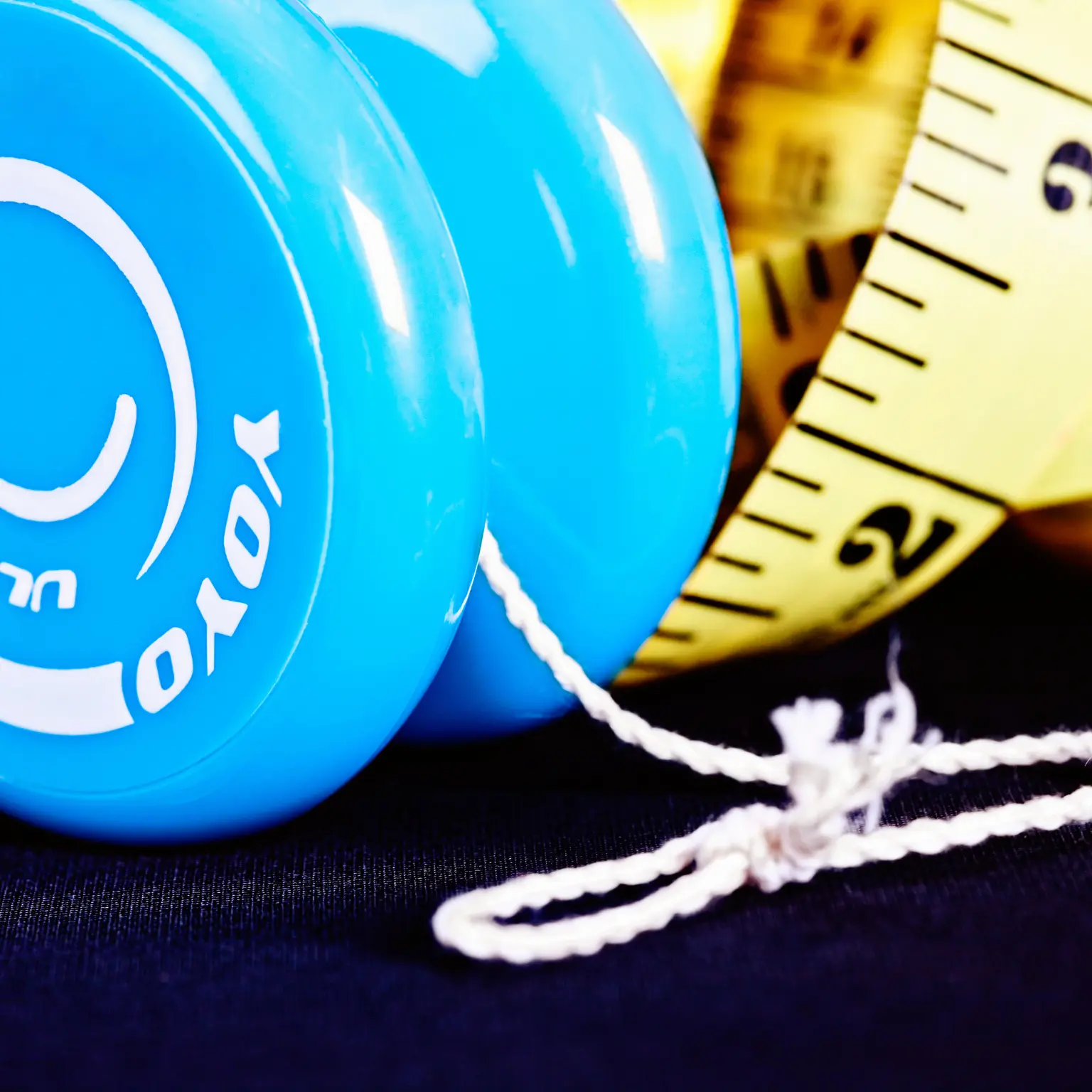Proven Strategies for Effective Weight Loss in 2024

Obesity rates are soaring, making weight loss a common goal. But shedding pounds is often easier said than done. Fad diets and quick fixes might promise rapid results, but sustainable weight loss is a different story. It’s about more than just the number on the scale; it’s about improving overall health and well-being.
This journey requires a holistic approach that considers both your body and mind. It’s about nourishing your body with wholesome food, moving regularly, and nurturing your mental health. We believe that lasting weight loss comes from making sustainable lifestyle changes, not drastic restrictions.
That’s why we’re here at Healthy Stride Wellness. This blog is your guide to evidence-based strategies for achieving and maintaining a healthy weight. We’ll cut through the noise, provide practical tips, and inspire you to embark on a transformative journey.
Let’s redefine weight loss together.
Table of Contents
Key Takeaways
- Losing weight and keeping it off is like taking a road trip, not running a short race. Emphasize the importance of gradual progress and long-term lifestyle changes over quick fixes and fad diets.
- Nutrition and exercise are foundational. Highlight the crucial role of a balanced diet and regular physical activity in weight management.
- Mindset and behavior play a significant role. Discuss the importance of setting realistic goals, building self-confidence, and managing stress for successful weight loss.
Understanding Weight Loss
Let’s unpack what weight loss means and explore the science behind it.
What is Weight Loss?
Weight loss is simply the reduction of your total body mass. It can be caused by a loss of muscle, water, or fat. However, for most people looking to improve their health, the goal is to lose fat mass while preserving muscle.
The Calorie Equation: Energy Balance
Imagine your body like a bank account. Calories are like currency. You consume calories from the food and drinks you ingest, and you expend calories through daily activities and bodily functions.
- Calories In: When you consume more calories than your body burns, it leads to a calorie surplus. This excess energy is stored as fat, leading to weight gain.
- Calories Out: Conversely, if you burn more calories than you consume, you create a calorie deficit. Your body is forced to tap into stored energy (fat) to meet its needs, resulting in weight loss.
In a nutshell, weight loss boils down to creating a calorie deficit. This can be achieved by reducing calorie intake, increasing calorie expenditure (exercise), or a combination of both.
Here’s a table to illustrate this concept:
| Calorie Balance | Weight Change |
| Calories In < Calories Out | Weight Loss |
| Calories In > Calories Out | Weight Gain |
| Calories In = Calories Out | Weight Maintenance |
It’s important to note that calorie needs vary depending on several factors, including age, sex, weight, height, and activity level.
Metabolism and Hormones: The Body’s Regulators
Metabolism refers to the complex biochemical processes that keep your body functioning. It determines how efficiently your body burns calories for energy. Many things affect how fast your body burns calories, such as:
- Basal Metabolic Rate (BMR): The number of calories your body burns at rest to maintain vital functions like breathing and circulation.
- Thermic Effect of Food (TEF): The energy your body uses to digest and absorb food.
- Activity Level: Calories burned through exercise and daily movement.
Your body’s hormones are also crucial in managing your weight. Hormones like leptin (which promotes satiety) and ghrelin (which stimulates hunger) can influence your appetite and metabolism.
Understanding these factors can help you develop a weight loss plan that addresses your unique needs.
Nutrition: Fueling Your Weight Loss Journey
What you eat plays a crucial role in achieving your weight loss goals. Let’s break down the essentials.
Macronutrients: The Building Blocks
Your body requires a mix of different nutrients to stay healthy. These include proteins, carbohydrates, and fats.
- Proteins: These are the building blocks of your body. They help repair tissues, build muscle, and keep you feeling full. Good sources include lean meats, poultry, fish, eggs, beans, and tofu.
- Carbohydrates: Your body’s primary energy source, carbs fuel your brain and muscles. Opt for whole grains, fruits, vegetables, and legumes over refined carbs.
- Fats: Essential for hormone production and nutrient absorption, healthy fats support weight management. Make sure to incorporate foods like avocados, nuts, seeds, olive oil, and fatty fish into your diet.
Micronutrients: The Unsung Heroes
Making sure you get enough vitamins and minerals is crucial for staying healthy and losing weight. They support metabolism, boost energy, and strengthen your immune system. Fill your plate with colorful fruits, vegetables, whole grains, and lean proteins to get a good mix of micronutrients.
Building a Balanced Plate
A balanced diet is key. Aim for a plate that’s half-filled with fruits and vegetables, a quarter with whole grains, and a quarter with lean protein. Portion control is essential. Pay attention to your body’s hunger signals and steer clear of eating without thinking.
Snack Smart
Snacking can be healthy! Choose options that are rich in nutrients and keep you satisfied. Think fruits, vegetables, yoghurt, nuts, and seeds. Stay away from processed snacks high in sugar and unhealthy fats.
Hydration: Don’t Forget to Drink Up
Water is essential for weight loss. It helps flush out toxins, boosts metabolism, and can help control appetite. Remember to hydrate properly by drinking a minimum of eight glasses of water daily.
Remember, sustainable weight loss is about making gradual, enjoyable changes to your diet. Focus on nourishing your body with wholesome foods and listening to your hunger cues.
Exercise: Your Body’s Best Friend
Exercise is a cornerstone of weight loss. It not only helps you burn calories but also boosts your metabolism and improves overall health. Let’s explore how to make exercise a fun and effective part of your weight loss journey.
Mix It Up
The key to enjoying exercise is finding activities you love. Combining cardio and strength training offers the best results. Cardio, like running, swimming, or dancing, helps burn calories, while strength training builds muscle, which boosts your metabolism. Aim for a balance of both.
Create Your Routine
Consistency is key. Develop a workout routine that fits your schedule and gradually increase its intensity as you get fitter. Remember, it’s okay to start small. Even small bits of exercise during your day can have a positive impact.
Move More, Sit Less
You don’t have to limit your exercise routine to the gym. Incorporate physical activity into your daily life. Take the stairs instead of the elevator, go for walks during breaks, or try gardening. Every little bit counts!
Remember, the goal is to find exercises you enjoy and stick with them. Your body will thank you!
Mindset and Behavior Change: The Cornerstones of Weight Loss
Your mindset and behaviors are powerful tools in your weight loss journey. Let’s explore how to harness them.
Setting Goals and Overcoming Challenges
Setting realistic and achievable goals is crucial. Break down your big weight loss target into smaller, manageable steps. Celebrate each milestone, no matter how small. Just a friendly reminder: losing weight is more like a marathon than a sprint. There will be challenges and plateaus. When faced with setbacks, don’t get discouraged. Take notes from their experiences, make changes in your strategy, and continue progressing.
Building a Support System and Healthy Habits
Find a circle of people who support and cheer on your aspirations. Connect with a weight loss group or an online community. When you share your progress with others, it can keep you motivated and responsible for your actions. Focus on developing healthy habits, like regular meal planning, consistent exercise, and adequate sleep. Small, consistent changes are more sustainable than drastic overhauls.
Managing Stress and Prioritizing Sleep
Stress can trigger emotional eating and disrupt weight loss efforts. Discover effective methods to handle stress in a positive manner. This could include practices like meditation, yoga, or simply spending time outdoors. Prioritize quality sleep. Try to get 7 to 9 hours of sleep every night without interruptions. Sleep deprivation can interfere with hormones that regulate hunger and fullness, making it harder to resist cravings.
By nurturing your mindset and adopting positive behaviors, you’ll create a strong foundation for long-term weight loss success.
Additional Tips and Strategies for Weight Loss Success
Let’s explore some extra tools and guidance to support your weight loss journey.
- Harnessing Technology
We live in a digital age, and technology can be a powerful ally in your weight loss efforts. Fitness apps and wearable trackers offer a wealth of information, from calorie tracking to exercise monitoring. They can help you stay motivated, accountable, and informed about your progress.
- The Importance of Medical Guidance
While many people can manage weight loss on their own, it’s essential to consult with a healthcare professional, especially if you have underlying health conditions. Regular check-ups can help monitor your progress, address any concerns, and ensure you’re on the right track.
- Debunking Weight Loss Myths
Misconceptions about losing weight are widespread. From miracle diets to exercise fads, it can be overwhelming. It’s important to rely on credible sources and ignore claims that sound too good to be true.
- Inspiration from Others
Listening to how others have achieved success can be really inspiring. When you share your own experiences and pick up lessons from others, it can give you useful perspectives and encouragement.
Each person’s path is special, and what helps someone may not help another. Be patient with yourself, celebrate small victories, and most importantly, enjoy the process of becoming a healthier you.
Conclusion: Your Journey to a Healthier You
So, we’ve covered a lot of ground. From understanding the basics of weight loss to exploring nutrition, exercise, and mindset, it’s clear that sustainable weight loss is a multifaceted journey. Remember, it’s not just about dropping pounds but improving your overall health and well-being.
Adopting a holistic approach is key. Focusing on nourishing your body, moving regularly, and nurturing your mind is the path to long-term success. Small, consistent steps are more powerful than drastic measures. Discover what suits you best and have fun while you go through it.
Are you prepared to kick off your weight loss efforts? Start by making small changes to your diet or incorporating a short walk into your day. Every little bit counts. Always remember, you have a partner by your side as you progress. Healthy Stride Wellness is here to assist you. Do read our blogs for more weight loss tips, motivation, and delicious recipes. Let’s embark on this transformative journey together!
FAQs
Wondering how to shed those extra pounds effectively?
There’s no one-size-fits-all answer. A combination of a balanced diet, regular exercise, and a healthy mindset is generally the most effective. Sustainable weight loss is about lifestyle changes, not quick fixes.
When can I see the results from this?
Weight loss is a gradual process. While some people might see initial results faster than others, it’s important to focus on overall health and well-being rather than just the number on the scale. Consistency is key.
Can I lose weight without exercise?
While diet plays a significant role in weight loss, exercise offers numerous benefits including boosting metabolism, building muscle, and improving mental health. Incorporating physical activity into your routine is highly recommended.
Please Note: Healthy Stride Wellness provides educational content and is not a replacement for medical advice. Consult a healthcare provider for any health issues.




